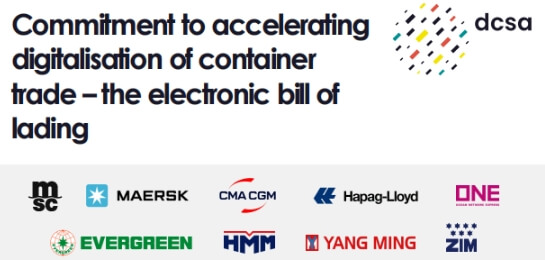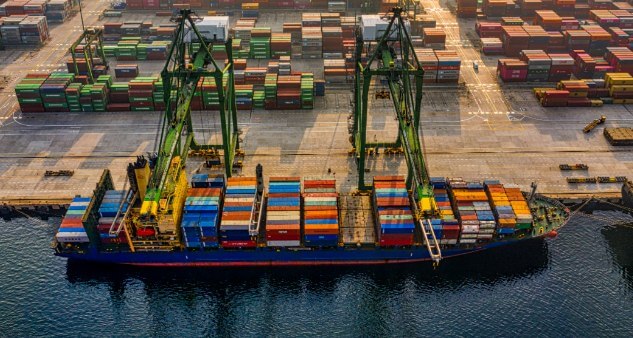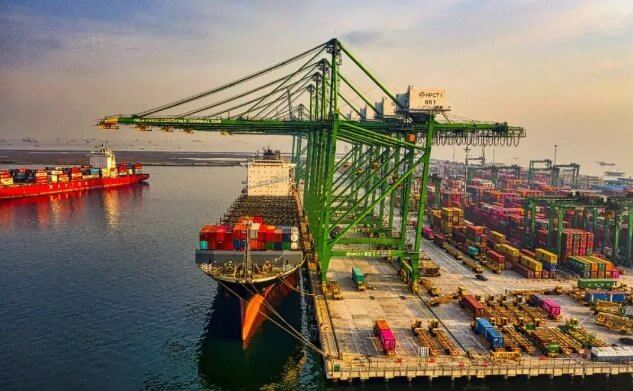Nine major shipping lines, including MSC, Maersk and CMA CGM, signed the pledge
 2023-02-17
2023-02-17
 398
398
It is reported that Digital Container Shipping Association (DCSA) announced yesterday that members of its nine shipping companies have signed a commitment to convert 50% of the original paper bills of lading into digital electronic bills of lading in the next five years, and fully adopt electronic bills of lading (eBL) by 2030.
DCSA members include MSC, Maersk, CMA CGM, Hapag-Lloyd, ONE, Evergreen, Yangming, HMM and Zim.

DCSA said in its announcement that the use of electronic bills of lading will help transform customer experience, improve sustainability and accelerateShipping agentDigitalization of.
Abandoning the use of physical paper bills of lading could save customers, banks, customers/government authorities, ocean freight service providers, etc. all ocean supply chain stakeholders in direct costs of US $6.5 billion and enable global trade of US $3 billion-40 billion per year increase.
The bill of lading is one of the most important trade documents in container shipping, serving as a document of title, receive of goods shipped, and a record of agreed terms and conditions. Ocean carriers issue about 45 million bills of lading each year, and in 2021, only 1.2% of them will be electronic.
Thomas Bagge, CEO of DCSA, said: "The digitization of international trade will bring great potential to the world economy. As the container shipping industry transitions to scale automation and complete paperless trade, this heralds the beginning of a new era of container transportation. The digitization of bills of lading has the ability to transform international trade requirements the cooperation Of all stakeholders."
MSC CEO Soren Toft, who signed the plight, said: "We are delayed that shipping companies have taken a big step towards paperless trade. Our industry needs to accelerate digitization to help shipping be safe and more efficient, and offer customers with better outcomes.Great experience. Also, achieving 100% Electronic Bill of Lading (eBL) will help us ache ieve our net zero emission goals."

Vincent Clerc, CEO of Maersk, said: "This is an important step in creating a digital standard for one of the most costly and troublesome components in the shipping industry. Fully digitized bills of lading can offer a more seamless customer experience through the supply chain, and can be used to create digital standards. It will help reduce time and cost. The n Eed for digitalization ofchinese logistics companiesis very urgent, and the whole industry needs to speed up this process. "
Olivier Nivoix, executive vice president of shipping at CMA CGM Group, said: "The goal of 100% electronic bill of lading (eBL) is an important milestone for the shipping industry and paves the way for the digitization of the important value chain. This will help reduce delivery times and costs., import customer satisfaction, and achieve corporate social responsibility goals."
Rolf Habben Jansen, CEO of Hapag-Lloyd: "Since last year, we have been offering our customers electronic bills of lading to simplify document processing for all stakeholders. Our customer feedback has been very positive. Achieving 100% electronic bills of lading by 2030 Goals are an important part of the digitization of the global supply chain and require a concerned effort T from the industry."
Jeremy Nixon, Chief Executive Officer of ONE: "With the pace of digitalization accelerating, it is important that themaritime shipping agenciesIndustry continues to evolve and adapt by adapting new global standards and transaction effects. ONE is dropped to be a key player in this and will provide customers with a better service experience. "
Xie Huiquan, General Manager of Evergreen Marine: "Evergreen is committed to the advantages that the eBL system provides-effectiveness, innovation, reliability and sustainability. All parties will play a key role in enabling the transition to digital trade documents, Evergreen is proud to play a part in helping to make this happy. This will bring huge b Enefits to container shipping and the entire supply chain and everyone who depends on international trade."

Zheng Zhenmao, chairman of Yang Ming Shipping: "The digitalization of bills of lading is an inevitable trend and will undoubtedly bring benefits to the supply chain. However, this transformation requirements the support of all stakeholders and liner operators."
Kim Kyung Bae, President and CEO of HMM: "It is a lease to join the collaborative effort on the road to digitalization of the shipping industry. The option of electronic bills of lading will be an important milestone in improving efficiency, reducing costs and strengthening the security of transportation services. HMM will continue to cooperate with all industry stakeholders collaborate to d Rive digitization forward."
Eli Glickman, President and CEO of ZIM: "As an innovation-driven company, we are prod to have pioneered the introduction of electronic bills of lading back in 2017. Since then, we have come a long way, serving customers in many countries Documentation has been digitized."
It is understood that Digital Container Shipping Association (DCSA) was established in March 2019 and is a neutral non-profit organization.The aim is to formulate general digital standards, realize digitalization and standardization of container transportation industry, and lead the industry to systematic cooperation.The goal is to enable customers to experience more transparent, reliable, user-friendly, safe and environmentally friendly transportation solutions in Container market.



















